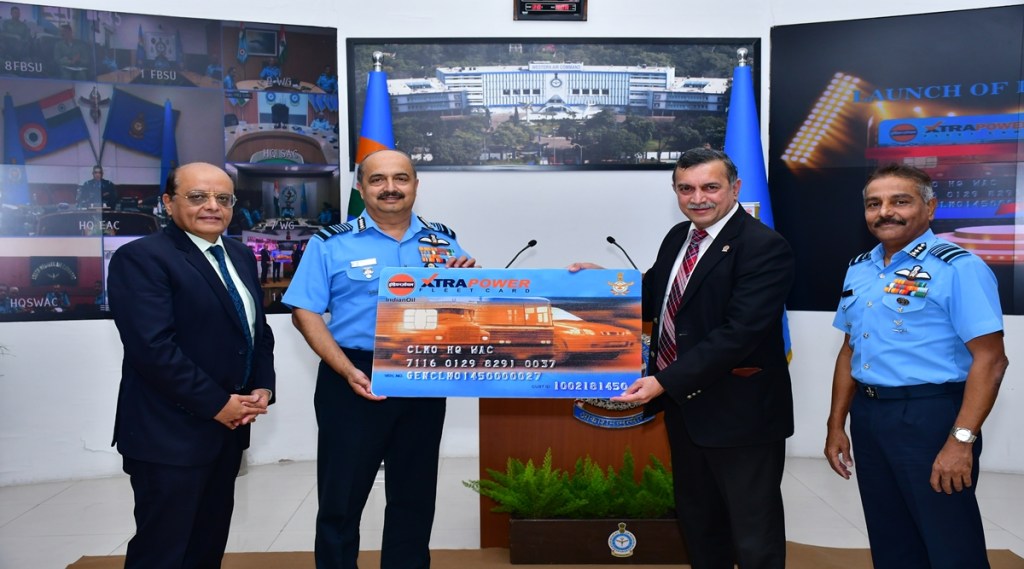In collaboration with Indian Oil Corporation Limited (IOCL), Indian Air Force (IAF) has taken a leap forward in fuel supply chain management. On Monday it introduced a `Fleet Card – Fuel on Move’ which will help its wide fleet of vehicles. This provides a paradigm shift to the logistics management of fuel, and enhances capability and the operational preparedness of the IAF
What is a Fleet Card?
According to the IAF, the Headquarters of Western Air Command was identified as the lead agency in implementation and execution of this new, innovative concept.
When a convoy is on the move, the Fleet Card will allow it to refuel at any IOCL fuel stations across the country. And this helps in reducing the time for readiness at operational locations, and also helps in increasing the pace of the movement.
The ‘Fleet Card’, was launched by the Air Chief Marshal VR Chaudhari, Chief of Air Staff at Headquarters Western Air Command, others present included Air Marshal S Prabhakaran, Air Officer Commanding-in-Chief Western Air Command and Mr. SM Vaidya Chairman IOCL.
What does it mean for the IAF?
IAF is considered to be the most flexible and responsive arm of the Indian defence forces and it is characterized by its quick mobility depending on the tactical requirements.
When the convoys are moving by road, for refueling they have to stop at the nearby Air Force Station, which often causes delays. The fuel is procured by the IAF from various agencies and is then distributed within the Air Force establishments.
Now, armed with the Fleet Cards, the convoys of the IAF will be in a position to use the vast network of retail fuel distributors across the country and re-fuel on the go.
This means, according to a senior officer, “It will help in enhancing mobility and the convoy can take the shortest route, instead of going through Military Stations for refueling.”
And this will also help in rapidly redeploying forces, depending on the requirements and indirectly help in enhancing the combat potential and efficient logistic management of the service.
This means, with the IAF, the air warriors and other resources, involved in fuel management can now be re-allocated towards other operational tasks and this is in line with the Shekatkar Committee recommendations.
Also, in line with the government’s thrust towards Minimum Government- Maximum Governance, accounting for fuel will become more efficient with paperwork being eliminated to a large extent. And also help in reducing carbon footprint.
The fuel retailers in the far flung areas are expected to greatly benefit by this move as it will help the local economies.

